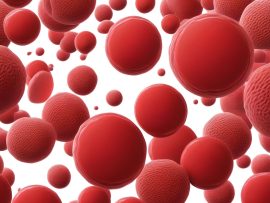Abstract The utilisation of cardiopulmonary bypass (CPB) during cardiac surgery is often associated with complex haemostatic perturbations, frequently manifesting as a paradoxical risk of both bleeding and thrombosis. This is..
Read MoreAbstract Extracorporeal membrane oxygenation (ECMO) is increasingly being utilized in critical care globally to allow for adequate oxygenation in patients with cardiac and/or respiratory failure. Unfortunately, haemostatic complications – both..
Read MoreAbstract Intraoperative haemostasis is of paramount importance in the practice of cardiovascular surgery. Over the past 70 years, topical haemostatic methods have advanced significantly and today we deal with various..
Read MoreAbstract The following sections are included: HISTORICAL NOTE DYNAMICS OF COAGULATION, FIBRINOLYSIS, AND COMPLEMENT ACTIVATION CARDIOPULMONARY BYPASS (CPB) Role of Oxygenators in Haemostasis ANTI-COAGULATION DURING CARDIOPULMONARY BYPASS Heparin Protamine..
Read MoreAbstract Background Variability in transfusion outcomes and excessive postoperative bleeding represents a significant problem in cardiac surgery. The effort to reduce bleeding complications and transfusion outcomes is desirable. Our study..
Read MoreAbstract Background: Thromboembolism and bleeding contribute to Coronavirus disease 2019 (COVID-19)’s morbidity and mortality and are also frequent complications of venovenous extracorporeal membrane oxygenation (vvECMO). As the interaction of the..
Read MoreAbstract Impaired haemostasis has been reported in children with congenital heart disease undergoing cardiopulmonary bypass. As thrombin generation encompasses all phases of the coagulation process, this analysis might provide the best assessment..
Read MoreAbstract OBJECTIVES Between 2% and 8% of patients return to the theatre for mediastinal bleeding following cardiac surgery. In the majority of patients, a surgical source of bleeding is identified...
Read MoreAbstract Introduction: Accurate dosing of protamine reversal following on-pump cardiac surgical procedures is challenging, with both excessive and inadequate administration recognised to increase bleeding risk. We aimed to examine the..
Read More





